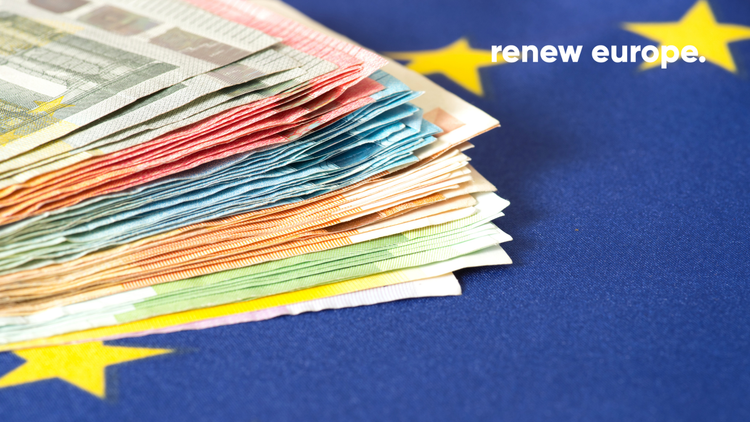The Recovery and Resilience Facility builds a stronger Europe, but there are important lessons to be learnt

In July 2020, to respond to the economic crisis triggered by the pandemic, the EU institutions agreed on a European recovery plan, the heart of which was the Recovery and Resilience Facility (RRF), an envelope of EUR 560 billion euros, including 310 in subsidies. Renew Europe took an active part in this agreement, marked by a historic common debt managed by the European Commission. The time for a first assessment came today with the vote by the European Parliament, meeting in plenary session in Brussels, on the first annual report on the implementation of the Facility.
Renew Europe believes, that the Facility has proved its effectiveness and strengthened the Union in times of crisis, supporting economic convergence between Member States and enabling the financing of strategic cross-border projects with European added value. However, important challenges prevail, which could put this historic European plan in check. Renew Europe demands a more stringent qualitative evaluation of the milestones and targets met by the Member States before unlocking disbursements – putting particular emphasis on the Polish plan. It also asks the Commission to assess why funds are taking so long to reach final beneficiaries in most Member State. Finally, Renew Europe expects the Commission to use the lessons learned from the first year of implementation of the Facility to enhance its effectiveness in the years to come as well as to prepare the Union for new crisis, such as the one caused by the Russian invasion in Ukraine.
Dragos PISLARU (REPER, Romania), parliamentary co-rapporteur in the Committee on Economic and Monetary Affairs (ECON) for the report on the implementation of the Recovery and Resilience Facility, said:
“Today the Parliament takes one step further in ensuring that democratic accountability is a solid principle at the core of the largest financial instrument the EU has ever seen. The most important question that we need to ask ourselves is: what do we leave behind? Do we let the RRF be a story or rather a legacy? We have an opportunity in these upcoming years to show that we learned something from the pandemic. And what best way to do so than by exploring the successes and shortcomings of the RRF. We are living challenging times, which require both unity and flexibility. Unity also means inclusiveness, but Member States did little to include stakeholders in the design of the plans. Flexibility means adapting to ongoing challenges. REPowerEU will improve the RRF and guide Member States to add in their plans measures to achieve energy sovereignty and independence”.
Luis GARICANO (Ciudadanos, Spain), shadow rapporteur for this file in the Committee on Budgets (BUDG), added:
“We are at a decisive moment for the success of the RRF. The Commission must do its job and enforce the reforms needed in each Member State to make their economies sustainable, resilient, and fit for the future”